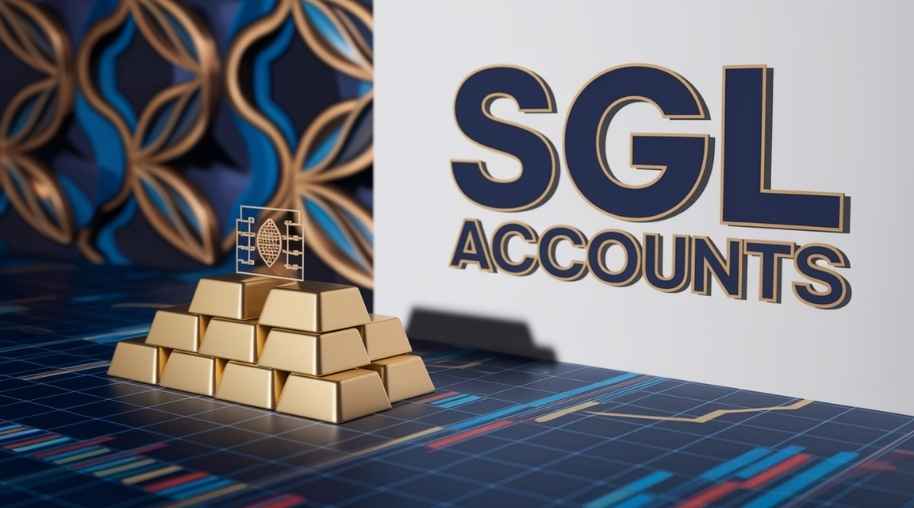SGL Full Form-Subsidiary General Ledger
by Shashi Gaherwar
0 3721
Subsidiary General Ledger (SGL): A Key Component in Financial Transactions and Banking
The Subsidiary General Ledger (SGL) is a vital tool in the financial and banking ecosystem, particularly for managing government securities and interbank transactions. Maintained by the Reserve Bank of India (RBI) and other central banks, SGL accounts ensure seamless settlement of securities transactions among banks, financial institutions, and government agencies.

This article explores the concept, importance, and functioning of SGL accounts in modern financial systems.
What is a Subsidiary General Ledger (SGL)?
A Subsidiary General Ledger (SGL) is an electronic account maintained with the central bank to record holdings and transactions of government securities and other financial instruments. It serves as a depository for banks and financial institutions, enabling secure and efficient transactions without physical certificates.
SGL accounts are critical for managing the purchase, sale, and transfer of government bonds and treasury bills, ensuring financial stability and transparency in monetary policy implementation.
Functions and Importance of SGL Accounts
SGL accounts perform several essential functions in the financial ecosystem:
- Facilitating Government Securities Transactions: Enables electronic buying and selling of securities, reducing paperwork and ensuring security.
- Supporting Monetary Policy Implementation: Assists central banks in regulating liquidity through bond transactions.
- Enhancing Banking Operations: Supports interbank transactions, collateral management, and liquidity adjustments.
- Reducing Settlement Risk: Minimizes risks like fraud and default through a centralized settlement system.
- Promoting Transparency and Compliance: Ensures adherence to banking norms, reducing financial malpractices.
Types of SGL Accounts
SGL accounts are categorized based on the entities that use them:
- SGL Accounts for Banks and Financial Institutions: Held by banks and primary dealers for direct participation in the securities market.
- Constituents' Subsidiary General Ledger (CSGL) Accounts: Managed by banks on behalf of entities like mutual funds and insurance companies without direct SGL access.
How SGL Accounts Work in Securities Transactions
SGL accounts streamline securities transactions through a structured process:
- Opening an SGL Account: Financial institutions apply to the central bank, meeting regulatory requirements.
- Buying Government Securities: Purchases are recorded electronically in the SGL account.
- Selling or Transferring Securities: Ownership is transferred digitally between SGL accounts without physical movement.
- Settlement Process: The central bank oversees secure and transparent transaction settlements.
Role of RBI in Managing SGL Accounts in India
The Reserve Bank of India (RBI) plays a central role in managing SGL accounts:
- Regulating Market Participation: Determines eligibility for operating SGL accounts.
- Ensuring Secure Transactions: Maintains electronic records to minimize fraud risks.
- Overseeing Monetary Policy Implementation: Uses SGL accounts for open market operations to control money supply.
- Facilitating Government Borrowing: Supports government fund-raising through bonds and treasury bills.
Advantages of Subsidiary General Ledger (SGL) Accounts
SGL accounts offer numerous benefits to the financial system:
- Digital Recordkeeping: Eliminates paper-based securities, reducing risks of loss or forgery.
- Faster Transactions: Electronic settlements significantly reduce transaction time.
- Secure and Transparent System: Regulatory oversight ensures high security and transparency.
- Cost-Effective Operations: Reduces administrative costs through efficient electronic processes.
- Compliance with Regulatory Standards: Aligns with central bank regulations to prevent market malpractices.
Challenges in Managing SGL Accounts
SGL accounts face several operational challenges:
- Cybersecurity Threats: Digital accounts are vulnerable to cyberattacks, requiring robust security measures.
- Technical Glitches: System failures can delay transactions, impacting market efficiency.
- Strict Regulatory Requirements: Compliance with complex rules can be time-consuming.
- Limited Access for Smaller Institutions: Smaller players rely on CSGL accounts, limiting direct market participation.
Future of SGL Accounts in Financial Markets
Advancements in financial technology are shaping the future of SGL accounts:
- Integration with Blockchain Technology: Enhances security and transparency in securities transactions.
- Automated Settlement Mechanisms: AI-driven solutions streamline transaction processing.
- Expanded Access for More Financial Institutions: Regulatory reforms may enable broader market participation.
Subsidiary General Ledger (SGL) accounts are integral to the smooth functioning of financial markets, enabling efficient trading of government securities and supporting monetary policy. As digital transformation advances, SGL accounts will evolve to ensure more secure, transparent, and efficient financial transactions, reinforcing their role in financial stability and economic growth.
Further Learning Resources
If you’re passionate about building a successful blogging website, check out this helpful guide at Coding Tag – How to Start a Successful Blog. It offers practical steps and expert tips to kickstart your blogging journey!
For dedicated UPSC exam preparation, we highly recommend visiting www.iasmania.com. It offers well-structured resources, current affairs, and subject-wise notes tailored specifically for aspirants. Start your journey today!

Share:









Comments
Waiting for your comments